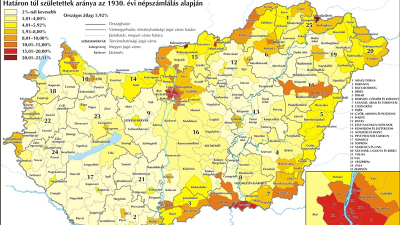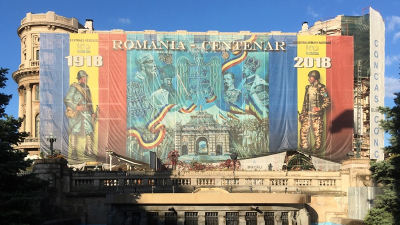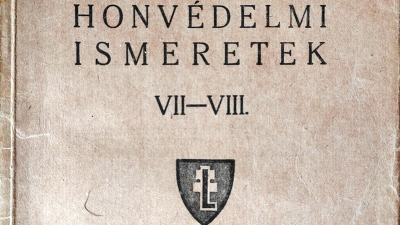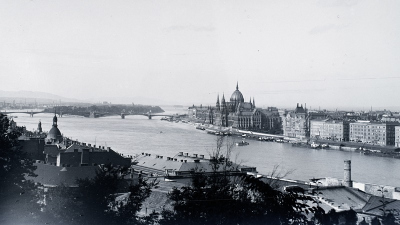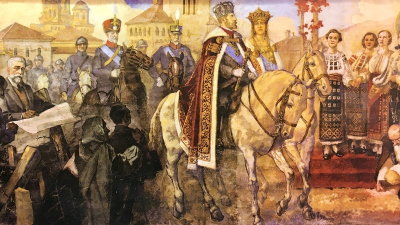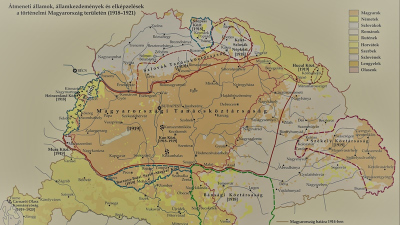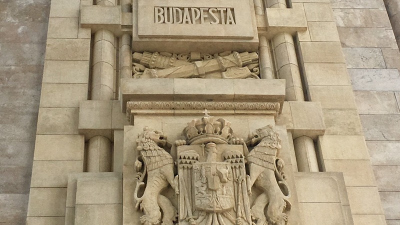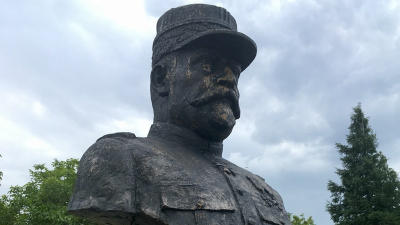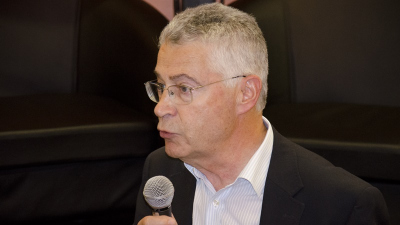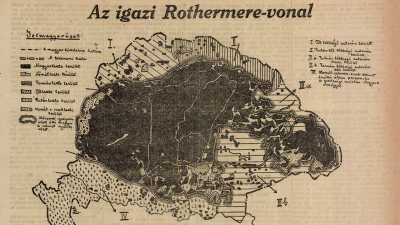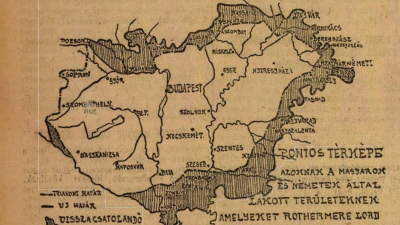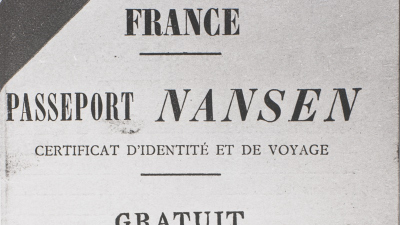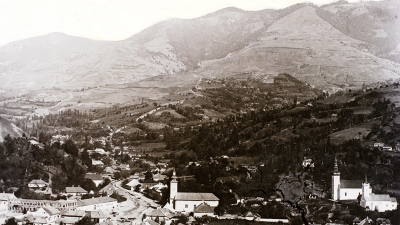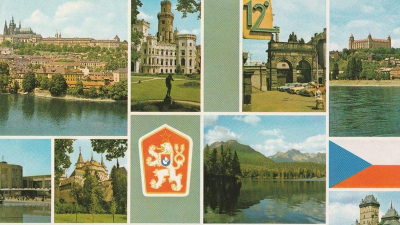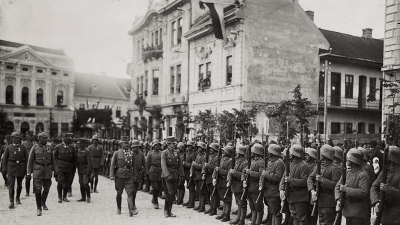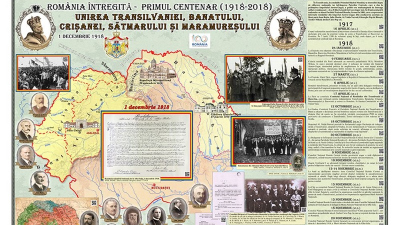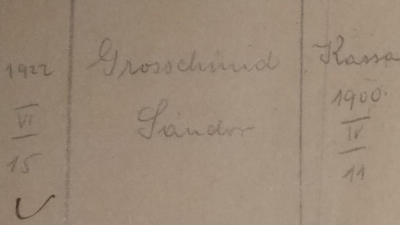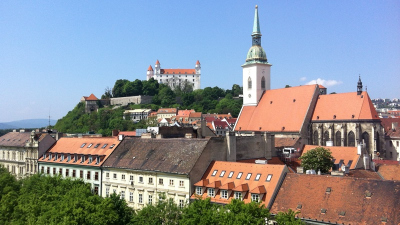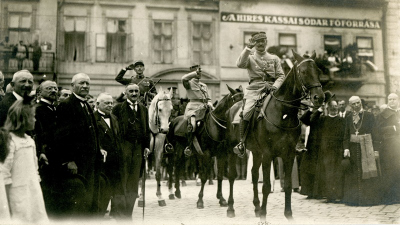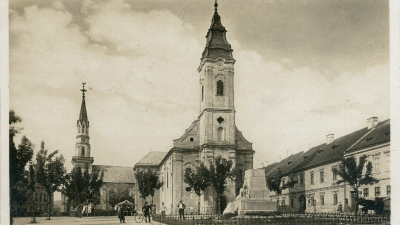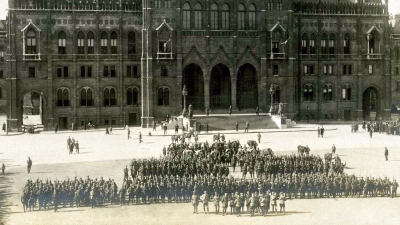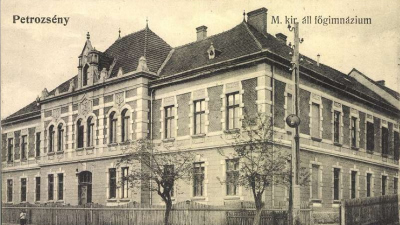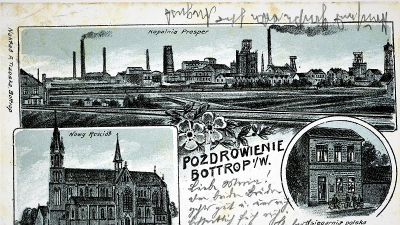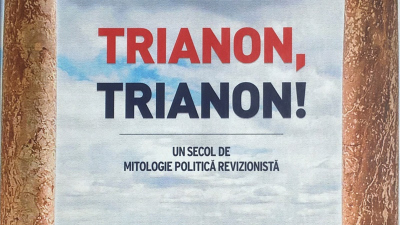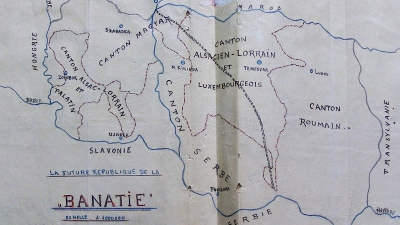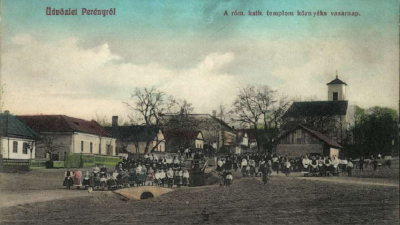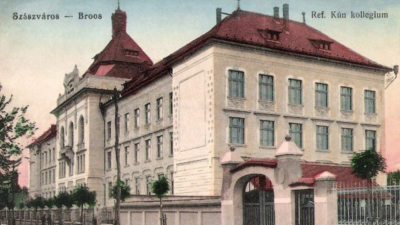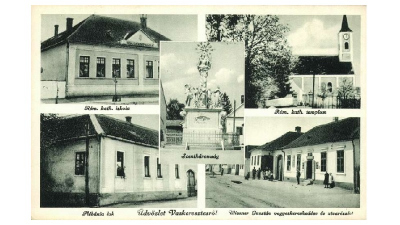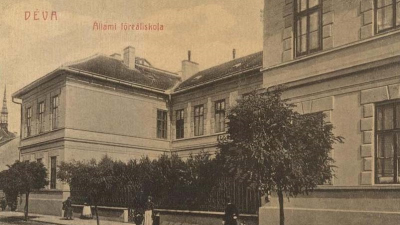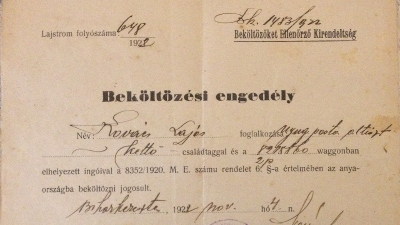Menekültek és menedékük
A Trianon 100 MTA–Lendület Kutatócsoport céljai között kezdettől szerepel a trianoni menekültek számának megállapítása. Koloh Gábor...
 |
A modern Románia 2018-as mérlege
2018-ban, majd az azt követő években egymás után jelentek meg Romániában az 1918-as „Nagy Egyesülés” – vagyis a román nemzet egy...
 |
A Horthy-korszak eredetmítoszának egyik utolsó változata
A trianoni békeszerződés megkötésétől szinte a második világháború befejezéséig tartó közel negyed évszázadot ugyan főként Horthy...
 |
Egy megéléstörténet
Az ego-dokumentumok történeti relevanciája abban rejlik, hogy megismerhetjük a szubjektív múltat is – vagyis a történelem fontos...
 |
Koronázás Gyulafehérváron
Október közepén látványos rendezvények töltötték meg élettel a dél-erdélyi Gyulafehérvár (Alba Iulia) erődjét. A több napos...
 |
Amikor nincs állam
2022. szeptember 26-án mutatták be a Nemzeti Közszolgálati Egyetemen a Ludovika Egyetemi Kiadó gondozásában megjelent...
 |
Háború a „Nagy háború” után
A bukaresti Monitorul Oficial (a román Hivatalos Közlöny) kiadója reprezentatív albumot jelentetett meg 2019-ben, az első...
 |
Amikor tényleg hálás az utókor
Nagy-Románia létrejöttének századik évfordulója alkalmából nemcsak a „Nagy Egyesülést”, vagyis a román nemzeti egységet megvalósító...
 |
Az utolsó tanulmány
Oplatka András történeti esszéje a trianoni békeszerződésről, illetve a béke előzményeiről és következményeiről.
 |
Olvasói revizionizmus (2. rész)
A Magyarság a későbbiekben is folytatta az olvasók által beküldött javaslatok közreadását, amelyek – ahogy a szerkesztők fogalmaztak...
 |
Olvasói revizionizmus
Bár a trianoni békeszerződést a magyar közvélemény szinte egységesen elutasította, a revízió nyílt követelése az 1920-as évek elején...
 |
Útlevél a "hontalanoknak"
Száz éve vezették be a „hontalanok” dokumentumát, a híres norvég diplomatáról és sarkkutatóról elnevezett Nansen-útlevelet....
 |
Elmondani az összeomlást
Egy száraz adminisztratív aktacsomó is rejthet csodálatos újdonságokat. 1920 májusában, egy hónappal a trianoni békeszerződés...
 |
Mi volt az a csehszlovakizmus?
Magyarország szomszédságában több államszövetség is létezett (Csehszlovákia, Jugoszlávia, a Szovjetunió), amelyek közül - eredeti...
 |
A trianoni határok előképei?
Az első világháborúban az Osztrák–Magyar Monarchia hadvezetése hadműveleti területeket alakított ki a birodalom mindkét felében. A...
 |
Nemzeti aranykorok térképei
Magyarországon több térképes kiadvány is napvilágot látott a trianoni békeszerződés aláírásának századik évfordulója alkalmából, de...
 |
A berlini optáns – Grosschmid (Márai) Sándor
Ami az iratok vagy a hivatalnok szemszögéből nézve csupán egy banális adminisztratív ügynek tűnhet, gyakran emberi sorsokat...
 |
A bajkeverő Magyarország és az ártatlan Szlovákia
A trianoni békeszerződés Szlovákia számára is fontos történelmi mérföldkő, amely azóta is hatással van a magyar–szlovák...
 |
Az államfordulat mikrotörténetei
Miként zajlott le az államfordulat a kassai pénzügyigazgatóság mikromiliőjében? Erről szól kollégánk, Szeghy-Gayer Veronika „Tost...
 |
Az átmenet bizonytalansága
Kollégánk, Simon Attila hamarosan megjelenő „Az átmenet bizonytalansága. Az 1918/1919-es impériumváltás Pozsonytól Kassáig” című...
 |
A románok Budapesten
A román történeti tudatban sajátos kép él az 1919-es magyar–román háborúról. Munkatársunk ezt vizsgálta meg a Historia Special...
 |
Menekülés Kis-Amerikából
A dévai és szászvárosi tanárok impériumváltást követő pályájának elemzése után Ablonczy Balázs, kutatócsoportunk vezetője ezúttal a...
 |
A Ruhr-vidéki lengyelek a háború után
Az első világháborút követően gazdát cserélt területeken maradt nemzeti kisebbségek helyzete és státusza nemcsak Magyarország és...
 |
Revizionizmus minden sarkon
2020-ban vaskos tanulmánykötet jelent meg Kolozsváron „Trianon, Trianon! A revizionista politikai mitológia egy évszázada” címmel. A...
 |
A Bánáti Köztársaság
1919 novemberében Sir George Clerknek bizonyos dél-magyarországi, a bácskai és bánáti svábok képviselőiként fellépő személyek egy...
 |
Nyugtalan határ 1923-ban
A határőrizeti szervek feladatainak Trianon után is fontos részét képezte a határesemények (más szóval határincidensek) észlelése és...
 |
Tanári pályák Erdélyben 1918 után
Ablonczy Balázs, kutatócsoportunk vezetője a dévai tanári pályákat bemutató írását követően azt vizsgálja meg, hogy a szászvárosi...
 |
Nyerészkedés vagy túlélés?
Fixl Antal német nemzetiségű pinkamiskei lakost 1920 januárjában országon belüli csempészet vádjával állították bíróság elé. A...
 |
Tizennyolc férfi 1918-ban
„Dévára 1918. december közepén vonultak be a román csapatok, és a berendezkedő román közigazgatás hamarosan hozzálátott az...
 |
Száz éve ratifikálták a trianoni békeszerződést
A trianoni békeszerződés 1920. november 15-i elfogadása előtt a Teleki-kormány fontos rendelkezést hozott. A békeszerződés...
 |


